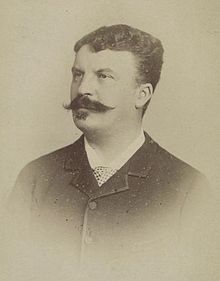
Henri René Albert Guy de Maupassant was a 19th-century French author, celebrated as a master of the short story, as well as a representative of the naturalist school, depicting human lives, destinies and social forces in disillusioned and often pessimistic terms.
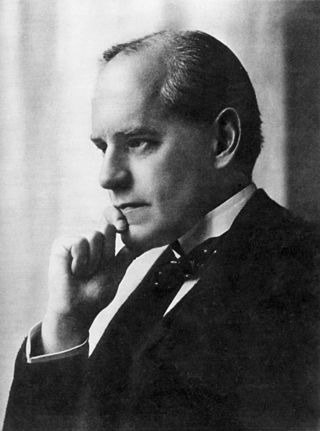
John Galsworthy was an English novelist and playwright. He is best known for his trilogy of novels collectively called The Forsyte Saga, and two later trilogies, A Modern Comedy and End of the Chapter. He was awarded the 1932 Nobel Prize in Literature.

Adrian Friedrich Wilhelm Julius Ludwig von Verdy du Vernois, often given the short name of Verdy, was a German general and staff officer, chiefly noted both for his military writings and his service on Helmuth von Moltke the Elder's staff during the Franco-Prussian War.

Karl Friedrich von Steinmetz was a Prussian Generalfeldmarschall. He was born at Eisenach and joined the army of Prussia during the War of Liberation. Over the Seven Weeks' War he led the V Corps against Austria and became known as the Lion of Nachod for his victories as the Battles of Nachod, Skalitz, and Schweinschädel. Steinmetz commanded one of three armies assembled on the Rhine for the Franco-Prussian War, during which he quarreled with Prince Friedrich Karl. After the war he retired.

Alfred Ludwig Heinrich Karl Graf von Waldersee was a German field marshal (Generalfeldmarschall) who became Chief of the Imperial German General Staff.
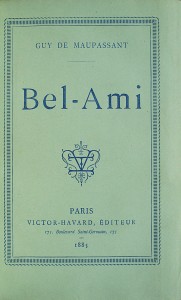
Bel-Ami is the second novel by French author Guy de Maupassant, published in 1885; an English translation titled Bel Ami, or, The History of a Scoundrel: A Novel first appeared in 1903.
"Mademoiselle from Armentières" is an English song that was particularly popular during World War I. It is also known by its ersatz French hook line, 'Inky Pinky Parlez Vous,' or the American variant 'Hinky Dinky Parlez-vous'. 'Inky Pinky' was a Scottish children's name for parsnip and potato cakes, but it has been suggested that an onomatopoeic reference to the sound of bed springs is more likely a soldier's ribald derivation.

"Boule de Suif", translated variously as "Dumpling", "Butterball", "Ball of Fat", "Ball of Lard", or "Small Ball", is a short story by the late-19th-century French writer Guy de Maupassant, first published on 15/16 April 1880. It is arguably his most famous short story and is the title story for his collection on the Franco-Prussian War, titled Boule de Suif et Autres Contes de la Guerre.
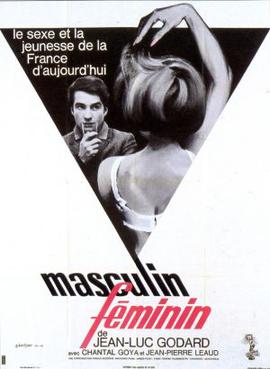
Male Female: 15 Specific Events is a 1966 French New Wave film, written and directed by Jean-Luc Godard. An international co-production between France and Sweden, the film stars Chantal Goya, Jean-Pierre Léaud, Marlène Jobert, Catherine-Isabelle Duport and Michel Debord.

The Royal Order of the Crown was a Prussian order of chivalry. Instituted in 1861 as an honour equal in rank to the Order of the Red Eagle, membership could only be conferred upon commissioned officers, but there was a medal associated with the order which could be earned by non-commissioned officers and enlisted men.

Mademoiselle Fifi is an opera in one act, composed by César Cui during 1902–1903. The libretto was adapted by the composer from the short story Mademoiselle Fifi (1882) by Guy de Maupassant and the dramatized version Mlle Fifi (1896) by Oscar Méténier.

"Deux amis" or "Two Friends" is a short story by the French author Guy de Maupassant, published in 1882. The story is set in Paris during the Franco-Prussian War, when the city lay under siege. The story examines French bravery, German stereotypes and, unusually for Maupassant, discusses the nature and justification of war in the form of a conversation between the two protagonists.

Kurt Kreuger was a Swiss-reared German actor. Kreuger once was the third-most-requested male actor at 20th Century Fox. He starred with, among others, Ingrid Bergman and Humphrey Bogart.

Mademoiselle Fifi is a 1944 American period film directed by Robert Wise for RKO, in his solo directorial debut. It was written by Josef Mischel and Peter Ruric based on two short stories by Guy de Maupassant, "Mademoiselle Fifi" and "Boule de Suif". The film features an ensemble cast headed by Simone Simon, John Emery and Kurt Kreuger, and was produced by noted B-film producer Val Lewton. The movie is set during a time when the Prussian Army occupied part of France in 1870. Since it was produced in Hollywood during the Second World War, in the same year Paris was liberated from Nazi rule, it contains elements of wartime propaganda, evoking Jeanne D’Arc among other heroes of French history, and holding up French people in occupied territory who follow orders as objects of pity or outrage, depending on their circumstances.
The Greater Good, or the Passion of Boule de Suif is an opera in two acts by contemporary American composer Stephen Hartke, with an English libretto by Philip Littell, based on the short story Boule de Suif by Guy de Maupassant. It was commissioned by the Glimmerglass Opera, and premiered on 22 July 2006 at Glimmerglass, in Cooperstown, New York.
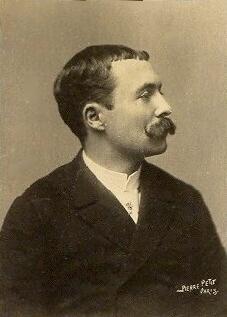
Oscar Méténier was a French playwright and novelist. In 1897 he founded Le Théâtre du Grand-Guignol in Paris, planning it as a space for naturalist performance.
Mademoiselle de Scuderi. A Tale from the Times of Louis XIV is a 1819 novella by E. T. A. Hoffmann which was first published in the Yearbook for 1820. Dedicated to Love and Friendship. It was later included in the third volume of Hoffmann's collection The Serapion Brethren.

Prince George of Prussia was a member of the House of Hohenzollern.
Boule de Suif is a black and white 1945 French drama film directed by Christian-Jaque and starring Micheline Presle, Berthe Bovy and Louise Conte.
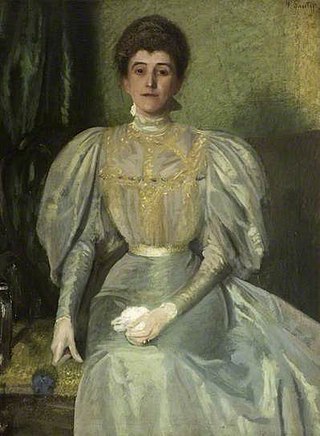
Ada Nemesis Galsworthy was an English editor, translator, writer and composer. She was married to Nobel Laureate for Literature John Galsworthy.
